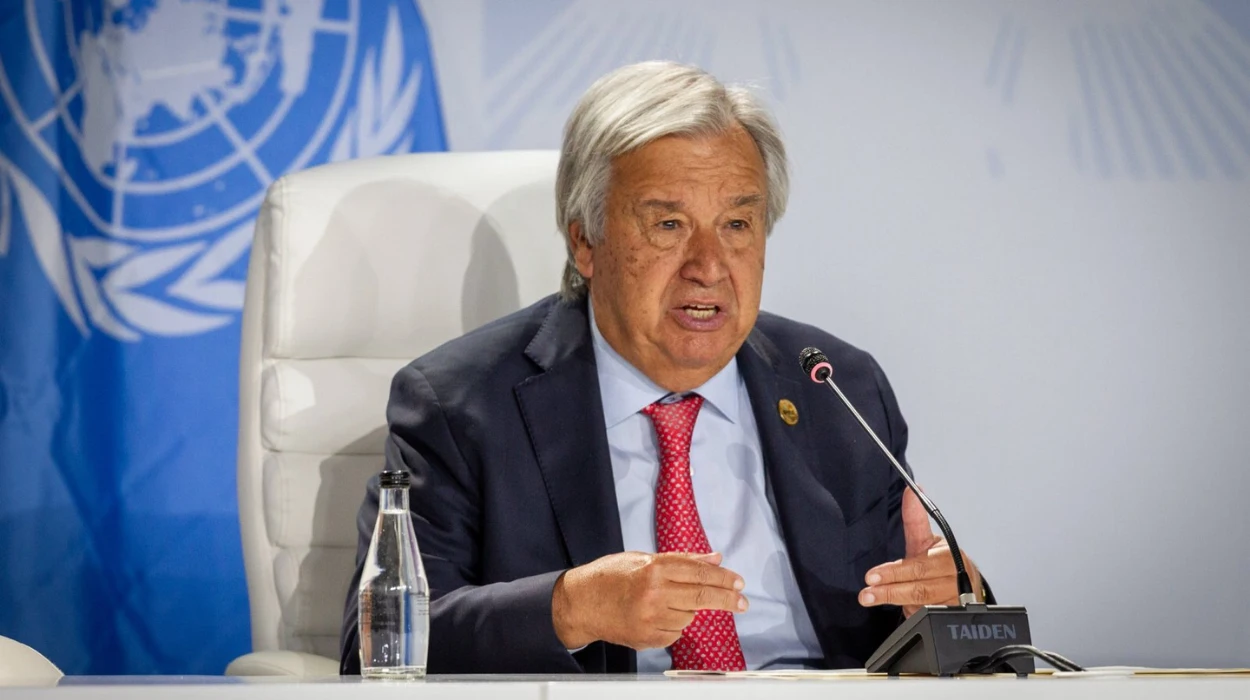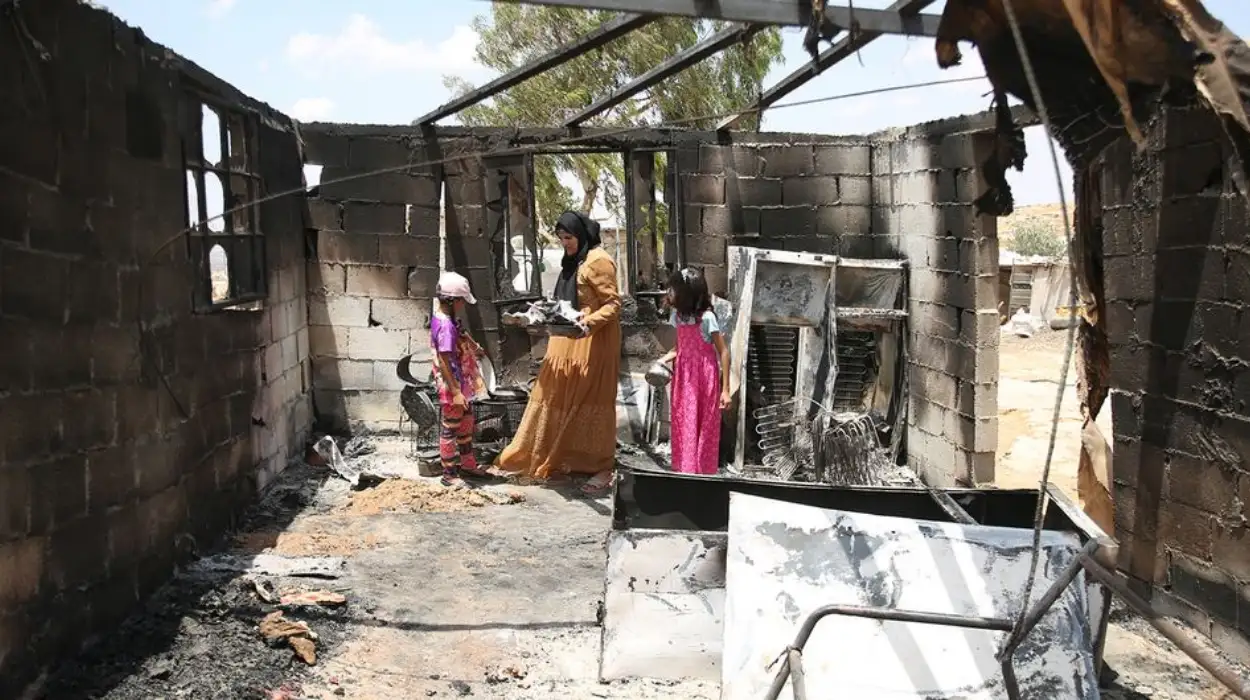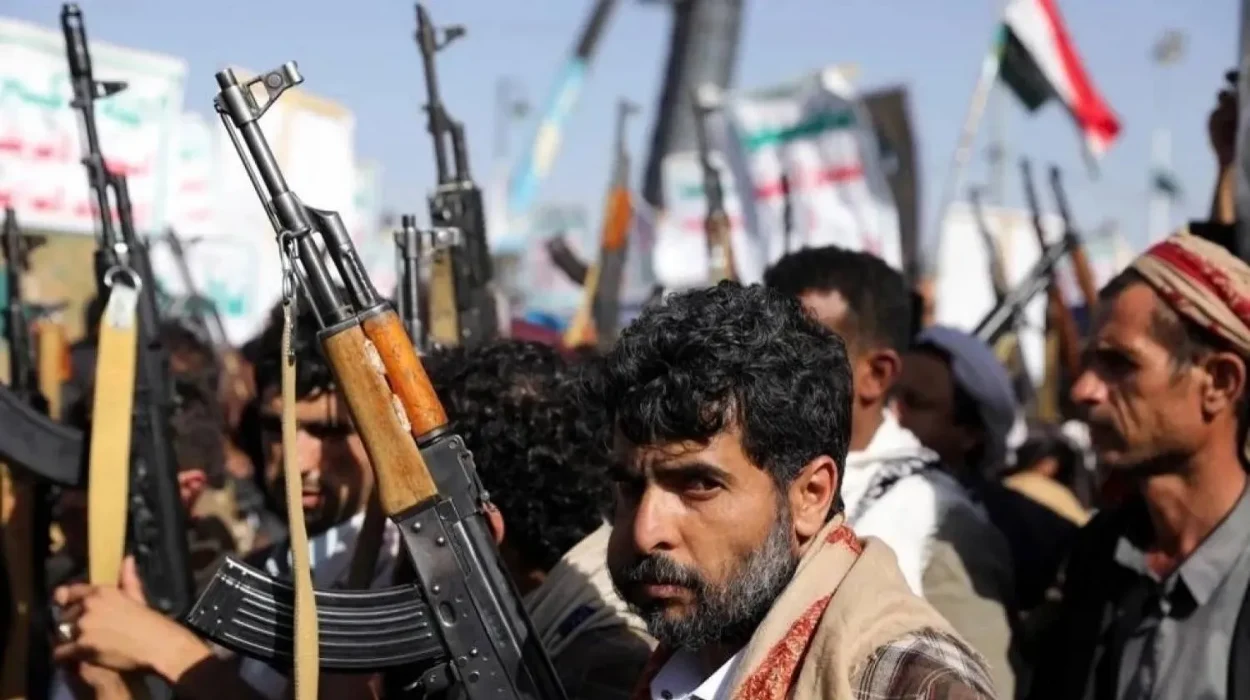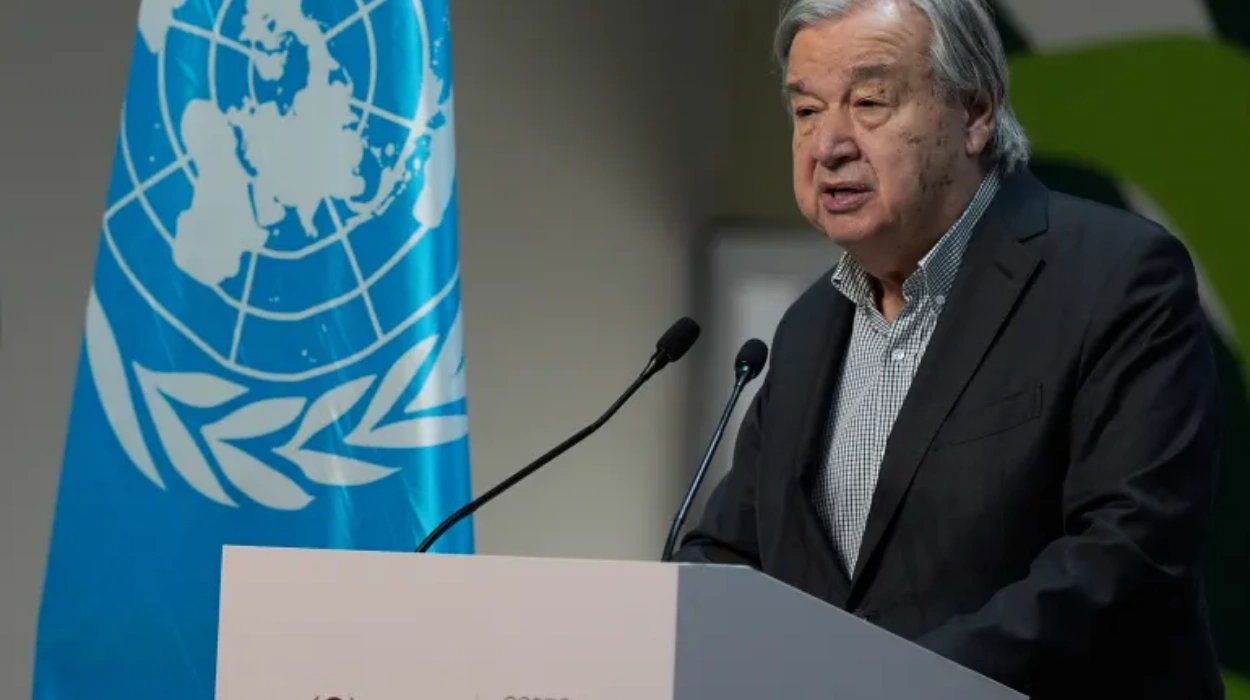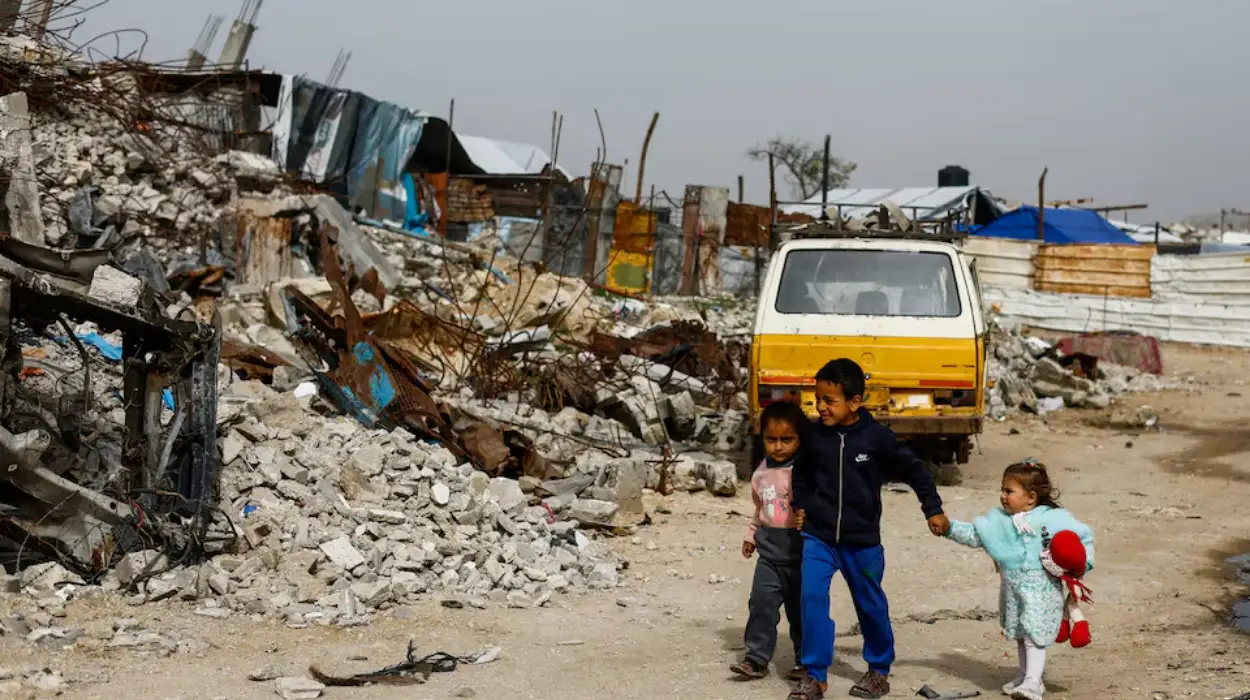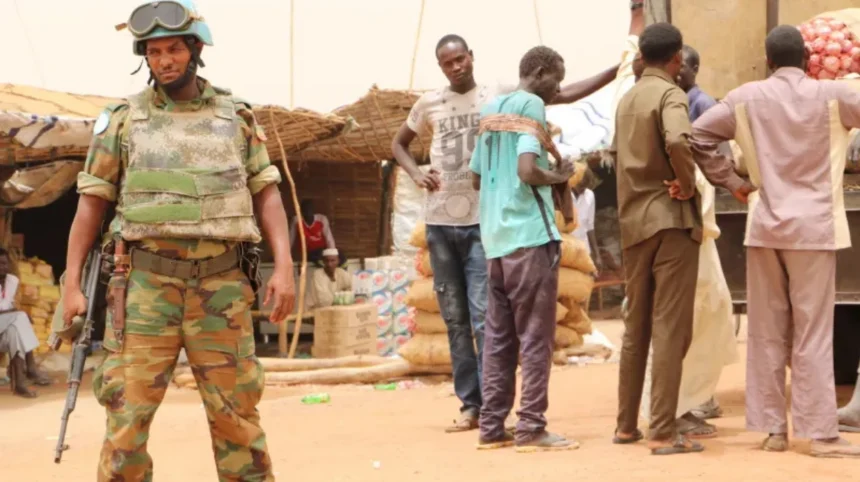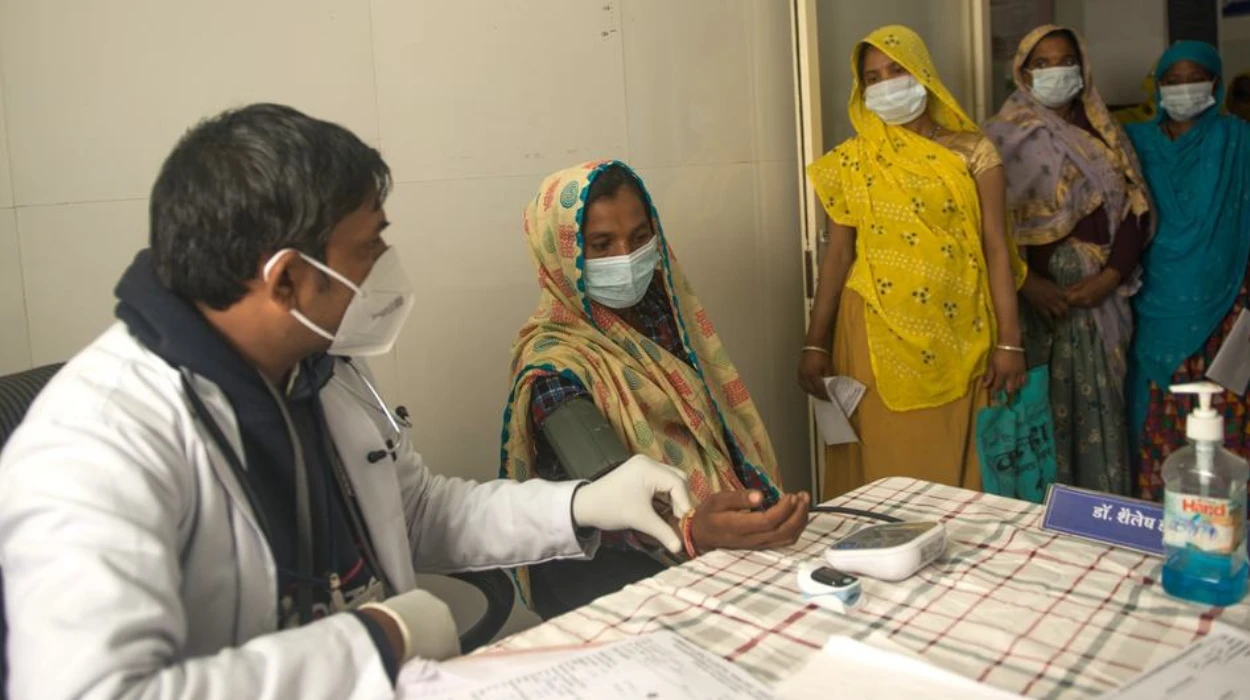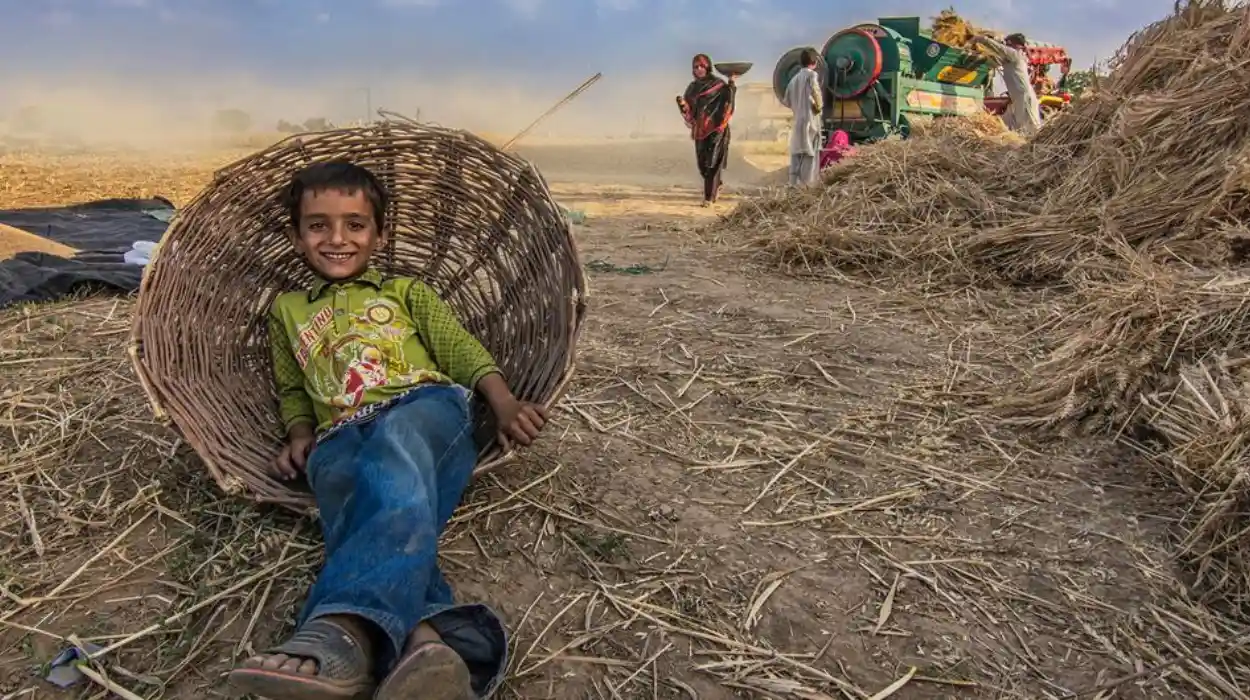This extended conflict between the national army of Sudan and the Rapid Support Forces (RSF) has disrupted not only the northern part of Sudan but also the whole border region with South Sudan threatening the already fragile peace in Abyei. The war between the Sudanese Armed Forces and the RSF since the conflict escalated in April 2023 has attracted local militias, disrupted humanitarian supply chains and blocked the resolving of Abyei, the contentious status of the region. The demilitarized condition of the area, which was introduced with the help of Agreement in 2011, is getting challenged more and more, as the two actors keep playing chess to control the oil-abundant corridor.
The United Nations data reveals that over 12 million Sudanese citizens have been displaced with increasing violence in 2025. The United Nations Interim Security Force in Abyei (UNISFA) is increasingly challenged because the mobility of this force is limited by drone strikes and insecurity. November 5, Assistant Secretary-General of Africa Martha Ama Akyaa Pobee had threatened the UN Security Council that the mission is acting in an untenable environment. UNISFA patrols have been restricted by drone attacks, and the humanitarian convoys have been stalled in the northern part of Abyei, leaving the civilians more vulnerable.
Although the Security Council, in the session of 2025 reaffirmed that both Sudan and South Sudan are formally bound to the dialogue, the situation on the ground is still stalemate. Similar emergencies, the Sudanese civil war and political insecurity in Juba- have paralyzed the diplomatic machineries meant to complete Abyei in its governance structures.
The Unfinished 2011 Accord And Its Erosion
In June 2011, the Abyei Protocol was signed that was to offer a temporary governing system awaiting a referendum that would establish whether the region would remain part of Sudan or become part of South Sudan. It put demilitarization and charged UNISFA with enforcement. Fourteen years later, the task still exists, but it has led to poor implementation.
The 3,959 employees of UNISFA are now finding themselves in an even more complicated situation, which is characterized by mass movement and broken governance on the two sides of the border. The recent shorting given by Pobee also revealed the growing influence of the RSF in the northern part of Abyei especially at Amiet Market where extortion and looting has increased. At the same time, reports of South Sudan troop presence in the south violate the demilitarization provisions of the accord. All these are blows against the neutrality and credibility of UNISFA.
The Breakdown Of Mutual Trust
The situation between Khartoum and Juba has become so sour since the start of the Sudanese war. This has put the UN mediators in Sudan in this tight spot since the country has no legitimate transitional authority and the leadership of South Sudan is too preoccupied with domestic political negotiations. Diplomats say a phase of eyes-closed, when both sides of the bargaining table recognize the price of not cooperating, but do not have the trumps to start cooperating again.
On the community level, there is now increased mistrust between the Ngok Dinka and Misseriya, who used to be tied by seasonal migration agreements. Mediation forums which used to play a critical role in settling conflicts in the past have fallen apart in the hands of the militia. According to UNISFA, customary arbitration is now replaced by armed patronage networks, thus making Abyei a possible microcosm of fragmentation in Sudan in general.
Economic Collapse And Cross-Border Repercussions
The Sudan war has disrupted the economic dependency between the two countries. The economy of South Sudan that relies on pipelines passing through Sudan has incurred recurrent loss after the RSF attacks on oil infrastructure. UN Special Envoy to the Horn of Africa Guang Cong notified the Security Council that the GDP of South Sudan had declined by approximately 25 percent since the beginning of the year. The fact that the recovery in the early 2025 was short-lived was due to the fact that new attacks in May and August resulted in the new shutdowns and caused oil spillages.
The financial meltdown of Sudan coupled with the loss of state control in the border areas has led to the development of informal economies which are dominated by the militias. Traders refer to RSF checkpoints that charge unlawful tariffs, increasing the freight expenses, and choking trade in the region. The Abyei corridor which was once an active trade route between Sudan and South Sudan is currently operating with less than 20 percent of its operational capacity, leaving the communities without the goods and livelihoods.
Humanitarian Pressure And Displacement
According to UNHCR statistics of September 2025, it is estimated that there are 180,000 displaced people in the Abyei Administrative Area currently. Over 50 per cent of the population has fled neighbouring West Kordofan and Unity State which are both ravaged by fighting and seasonal floods. The humanitarian aid agencies under the protection of UNISFA are experiencing mounting challenges such as insecurity, fuel shortage, and drone activities. This has restricted the air operations as RSF drones hit close to Kadugli compelling it to use what is considered unsafe over land routes.
UN officials gradually started to define the humanitarian emergency in Abyei as a regional, but not localized, problem. In the absence of safe routes between Sudan and South Sudan, displacement may further increase in Upper Nile and Northern Bahr el Ghazal- areas that are already prone to high population of refugees.
Abyei As A Test Of Multilateral Resolve
The crisis in Abyei has become one of the major challenges of the UN peacekeeping flexibility in the hybrid wars. UNISFA since its inception has been working as a monitoring mechanism with minimal diplomatic power. The 2025 strategic review suggested that it extended its role to mediation support together with the African Union (AU) and the Intergovernmental Authority on Development (IGAD).
In June 2025, the Commissioner of the Political Affairs department at the AU observed that Abyei represented the nexus of sovereignty, identity, and survival. His utterance was reminiscent of an emerging understanding that the problem of Abyei goes beyond territorial demands, it is one of building viable co-existence in circumstances of state failure. However, the international influence is still low as the war intensifies in Sudan and the rule of South Sudan continues to collapse.
Regional And International Diplomacy
Diplomatic works on Abyei negotiations are still going on in precarious conditions. Similar discussions have been undertaken by the AU, IGAD and the Gulf partners regarding the stability of the borders and oil security but none of them has resulted in enforceable solutions. Any mediation efforts in Sudan are not guaranteed of success by absence of lasting ceasefire because no power can ensure this on the ground.
The governments of the west have changed their focus to humanitarian issues by stating that political facilitation must come before they can restore basic security to civilians. The peacebuilding divisions of the UN see the stalemate in Abyei as a mere symptom of the Sudanese governance failure. The current existence of a tiny and disputed land under continued international control highlights the suppressiveness of post-secession peace structures in the Horn of Africa.
The Growing Risk Of Militarized Coexistence
According to field reports, both northern and southern Abyei are filled with security gaps, which are being occupied by self-armed militias. These groups usually capacitated with ethnic or political patrons who came out as champions of community security. But the boundary between protection and predation becomes obscured as they increasingly become entrenched. By becoming normalized, Abyei will become a territory to be turned into a permanently militarized zone of coexistence as the whole principle of demilitarization will be compromised.
Political instability in South Sudan exacerbates the trend. With elections postponed again until 2026, Juba remains consumed by internal negotiations over power-sharing and revenue distribution. As Guang Cong emphasized, “cross-border insecurity jeopardizes both political progress and vital infrastructure.” Without consistent coordination between both states, demilitarization may unravel under the combined weight of local insecurity and national fragmentation.
The Demography Of Stalemate
Abyei’s social structure reflects the human cost of perpetual uncertainty. Its population is fluid, with displaced families forming temporary settlements across shifting frontlines. Many residents have lived under UN supervision for more than a decade, their sense of normalcy shaped by dependency and insecurity. Interviews with young residents reveal a generation accustomed to volatility, equating peace not with political resolution but with the absence of immediate violence.
Such generational fatigue mirrors the broader disintegration of governance in both Sudan and South Sudan. Without national coherence, local initiatives cannot mature into durable peace. Abyei’s fate, therefore, is tied not only to its geography but to the restoration of minimal state functionality in both capitals.
Between Paralysis And Possibility
Abyei is the place where two failing systems meet, one of them in the state of war, the other in the state of spindleness. The Sudan conflict has emptied the diplomatic and institutional structures that were previously created to stabilize the region with UNISFA being the final line of defence against another face-off.
However, tentative overtures are made. The two governments have employed the same words of commitment to the dialogue and the restricted trade under UN guard has been reinstated along the monitored routes. These small steps, which are weak, show that it is not too late to cooperate in the cases based on humanitarian needs in the short term. Another question is whether this pragmatic interaction can transform into political dialogue or not, and it will be possible to rebuild trust in governance systems that have been undermined over decades of conflict.
The course Abyei takes between war and survival has become a kind of barometer of what will become of the Horn of Africa. Should peace be sustained even during the collapse of Sudan, then perhaps it is only an indication that the weak states have the ability to withstand the complete breakdown despite the fact that they are encircled by the wars to an extent that they appear endless.


